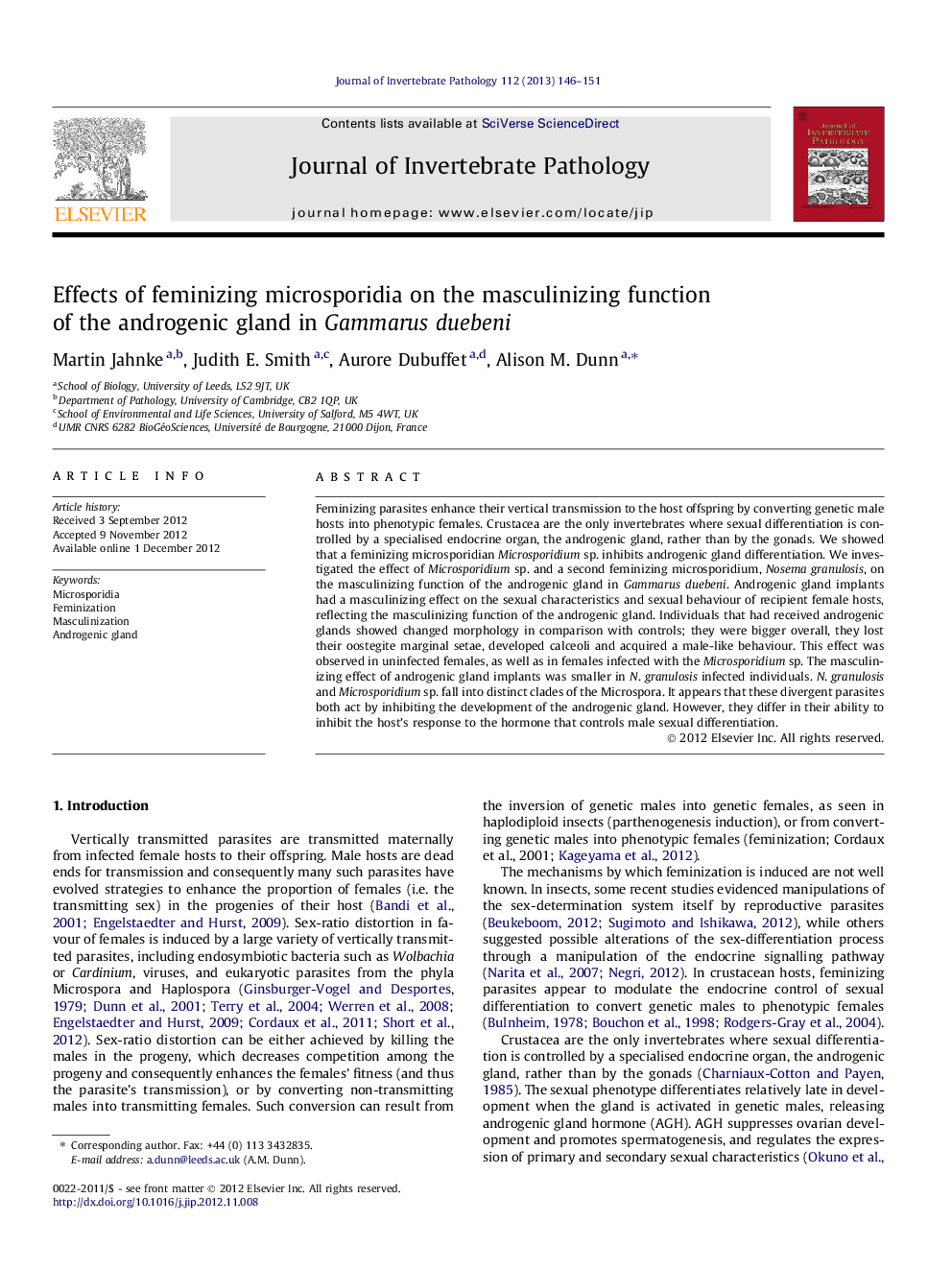| کد مقاله | کد نشریه | سال انتشار | مقاله انگلیسی | نسخه تمام متن |
|---|---|---|---|---|
| 6389636 | 1329895 | 2013 | 6 صفحه PDF | دانلود رایگان |
Feminizing parasites enhance their vertical transmission to the host offspring by converting genetic male hosts into phenotypic females. Crustacea are the only invertebrates where sexual differentiation is controlled by a specialised endocrine organ, the androgenic gland, rather than by the gonads. We showed that a feminizing microsporidian Microsporidium sp. inhibits androgenic gland differentiation. We investigated the effect of Microsporidium sp. and a second feminizing microsporidium, Nosema granulosis, on the masculinizing function of the androgenic gland in Gammarus duebeni. Androgenic gland implants had a masculinizing effect on the sexual characteristics and sexual behaviour of recipient female hosts, reflecting the masculinizing function of the androgenic gland. Individuals that had received androgenic glands showed changed morphology in comparison with controls; they were bigger overall, they lost their oostegite marginal setae, developed calceoli and acquired a male-like behaviour. This effect was observed in uninfected females, as well as in females infected with the Microsporidium sp. The masculinizing effect of androgenic gland implants was smaller in N. granulosis infected individuals. N. granulosis and Microsporidium sp. fall into distinct clades of the Microspora. It appears that these divergent parasites both act by inhibiting the development of the androgenic gland. However, they differ in their ability to inhibit the host's response to the hormone that controls male sexual differentiation.
Highlights⺠We examined the mechanism of action of two species of feminizing microsporidia. ⺠Both parasites inhibited androgenic gland development in the host. ⺠Androgenic gland (AG) implants caused masculinised host morphology and behaviour. ⺠Microsporidia from divergent clades have evolved the same feminization mechanism. ⺠Nosema granulosis caused partial refractoriness to AG hormone.
Journal: Journal of Invertebrate Pathology - Volume 112, Issue 2, February 2013, Pages 146-151
